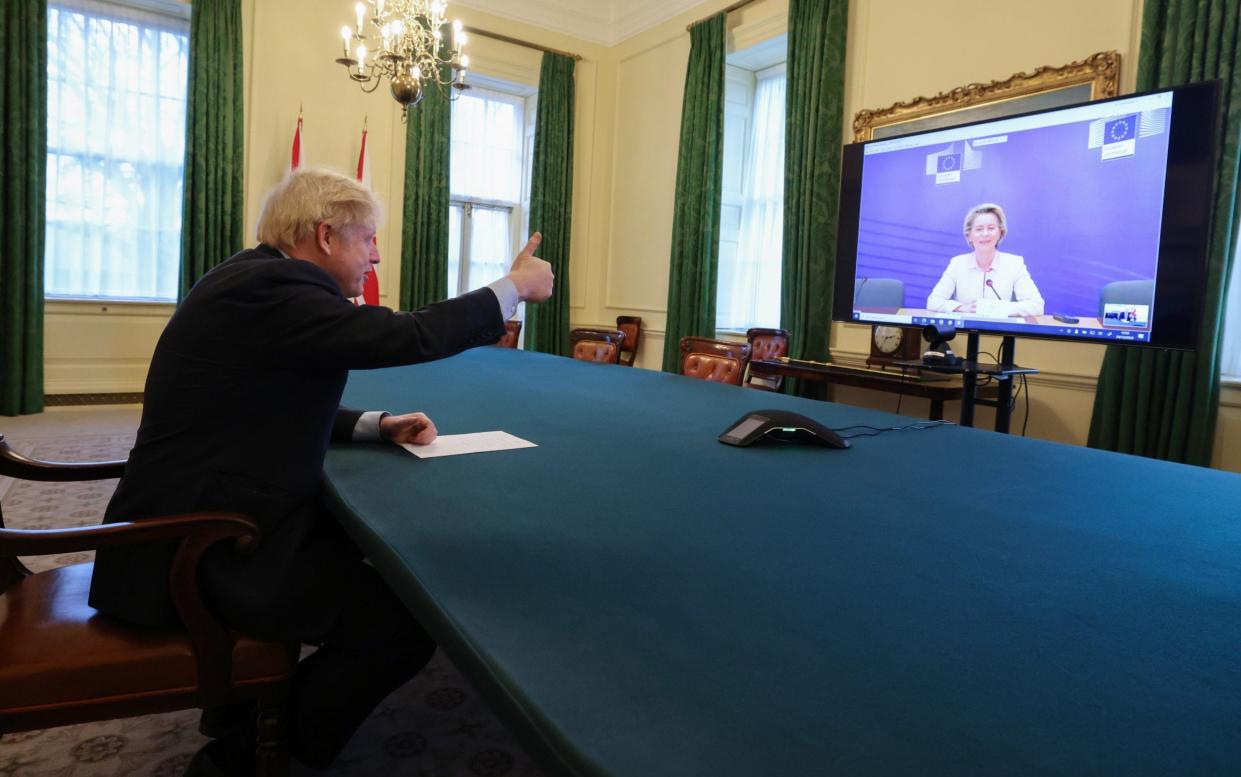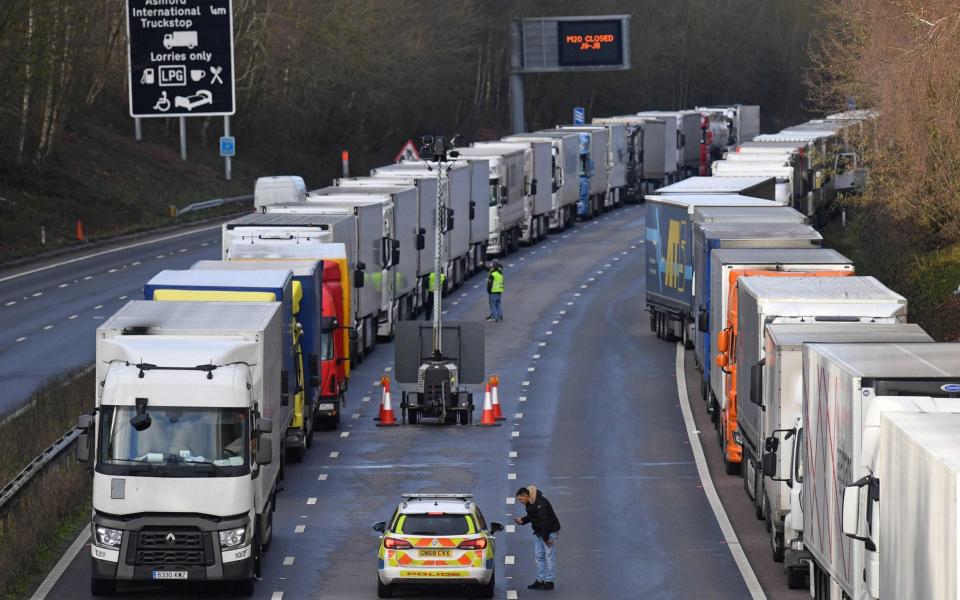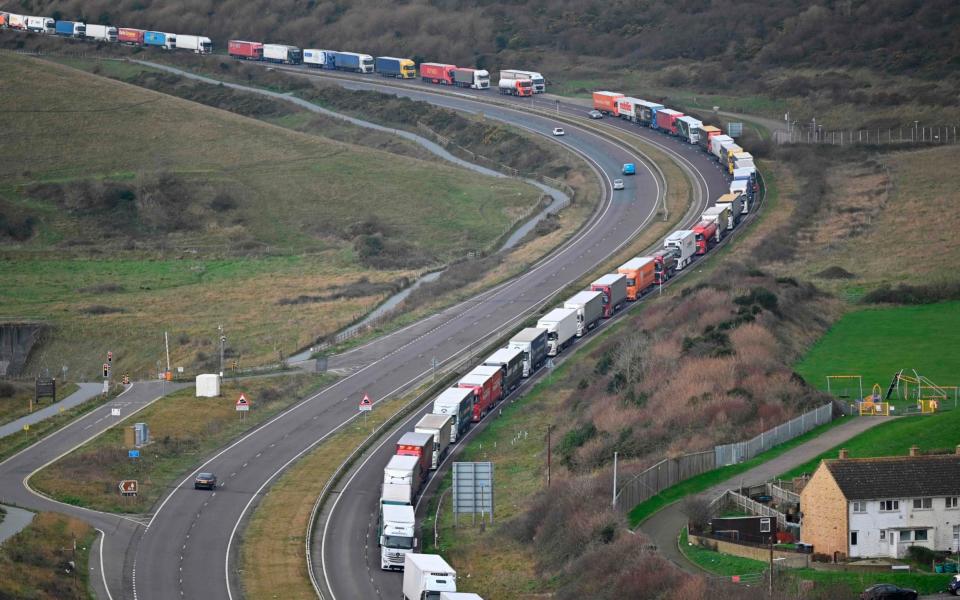How European media is reacting to the Brexit deal

As Britain and the European Union reached a Brexit deal on Thursday, European newspapers reacted with a mixture of relief at the avoidance of no deal and disappointment at the imminent breakup.
"White smoke after months of negotiations," said Sky TG24, a leading TV network, drawing on the metaphor of the white smoke that traditionally signifies that a Vatican conclave has chosen a new pope. The "nightmare" of a no deal has been averted.
Ansa, the national news agency, cites Boris Johnson's tweet, in which the prime minister, with his thumbs up, announced "the deal is done".
A boon for Boris
There was much at stake for both sides, not least for the British prime minister, the Italian press reported.
"Boris needed a deal," said Corriere della Sera. "His poor management of the pandemic has devastated his popularity and the most recent emergency, caused by the new strain of the virus, has removed all space for manoeuvre. Now he has something concrete to show the country and will do everything possible to sell the deal as a victory for London and the full recovery of national sovereignty."
The EU wanted a deal as well, not just for obvious economic reasons, but because failure would have marked a "geopolitical fracture at a time in which Europe has to confront challenges from China and Russia."
The deal is done. pic.twitter.com/zzhvxOSeWz
— Boris Johnson (@BorisJohnson) December 24, 2020
On Thursday afternoon, French newspapers praised a "historic deal" reached between Britain and the EU on the eve of Christmas. "It is decidedly very good news," wrote leading French daily Le Monde.
French President Emmanuel Macron applauded Europe for its "unity and steadfastness. The deal with the UK is essential to protect our citizens, our fishermen, our producers. We will make sure this is the case. Europe is moving forward and can look to the future, united, sovereign and strong," he said on Twitter.
But French media also honed in on tense negotiations and the perceived rivalry between their country and the UK.
Conservative newspaper Le Figaro focused on the "complex relationship" between France and its British neighbour. "Everything is always the fault of the French," the daily wrote, mocking the regular "French-bashing" of British tabloids over the last weeks of negotiations.
"Napoleon's children continue to want to put Europe at their feet and the tough clashes between the United Kingdom and the EU are their fault. They are the ones who, in the last few meters on the long glacis of the negotiations, fired devious cannons at the deal. With Emmanuel Macron as chief gunner."

As Boris Johnson posted a picture with his thumbs up to announce the deal, "the important thing was to show who won the most points," wrote liberal paper Liberation. "Even before the deal was published, the government had started trying to sell it at home, claiming victory over the European Union."
Wake-up call in the new year
There was initial delight in Germany at the deal being brought over the line.
"We've achieved legal certainty for our economy and fair competition rules," tweeted Katja Leikert, deputy head of the CDU Bundestag faction. "We now need new momentum in our cooperation with London!"
Germany's Europe Minister, Michael Roth, said "thanks to all for fighting for fairness and integrity of the single market. Team play and solidarity within the EU were and will be key."
However, some papers were downcast at the prospect of further bureaucratic obstacles to trade.
Der Spiegel argued that the deal would still entail a hard Brexit, prophesying "brutal consequences" for businesses. "The new year will be a hard wake up call," the magazine argued, "the damage to companies will be enormous, but it is ordinary citizens who will pay the highest price."
The conservative Welt newspaper said the agreement "will be met with relief in German boardrooms", stating that big firms like BMW that have factories in the UK will still be able to rely on production points across the continent "even if investing in the UK will become less attractive."

The lorry chaos helped
Spanish newspaper El Mundo said the agreement was “historic” but added that it probably would not have been reached if the chaotic pile-up of lorries at Dover had not occurred to concentrate the minds of both parties on what a no-deal Brexit could entail.
“Beyond the skill of the negotiators, it should be recognised that the agreement would surely have collapsed without the social pressure exerted by the dystopian scenes experienced in Dover”, said El Mundo’s editorial, adding that the agreement would surely be approved by all parties over the coming weeks.
El País also described the in-principle agreement as “historic”, and said that it would allow British companies to continue to enjoy “unlimited and permanent access to a market of 450 million people”, while also noting that the UK market accounts for 18 per cent of the 27 member states’ non-EU exports.

 Yahoo News
Yahoo News 
